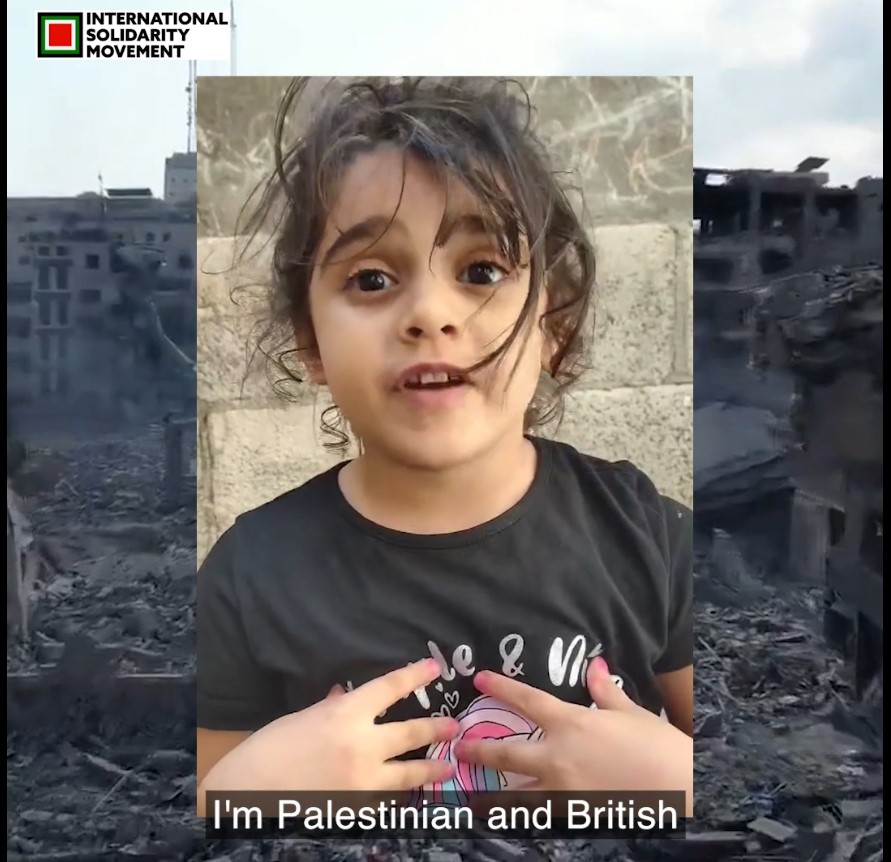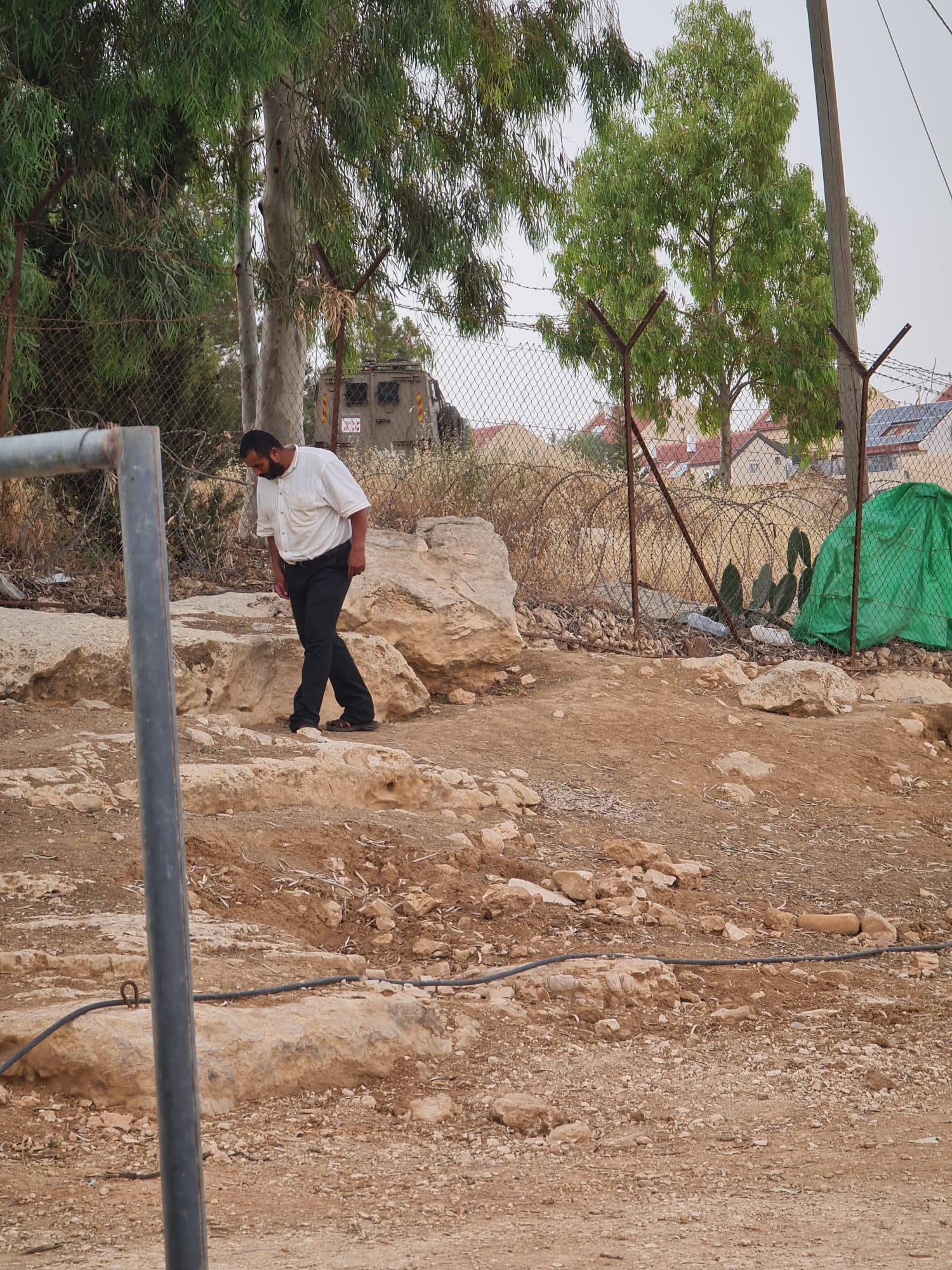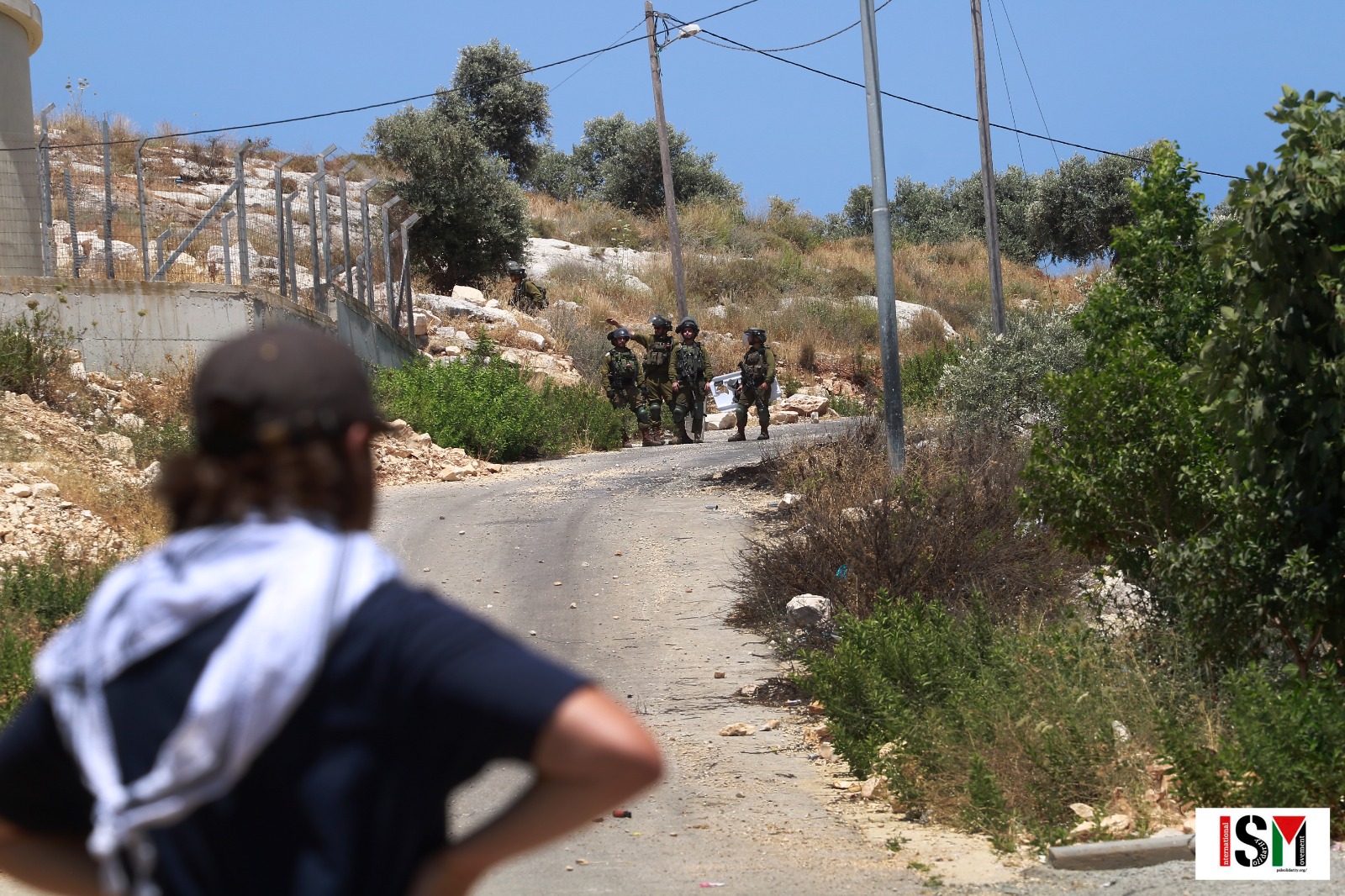Tag: palestine
-
WATCH: British-Palestinian children in Gaza call on Rishi Sunak to stop Israel’s massacre
‘I’m scared. They keep bombing children.’ Jenna and Nur, two British-Palestinian sisters in Gaza, have called on Prime Minister Rishi Sunak to stop the bombing in a video message. Jenna is just five years old, and Nur is seven. The sisters are living under constant bombardement, and are now homeless. In 19 days of…
-
Revenge attacks in Masafer Yatta
16 October, 2023 | International Solidarity Movement | Masafer Yatta In the week since Israel began its onslaught on Gaza, soldiers and settlers have bulldozed homes, carried out night raids and attacked Palestinians across the Masafer Yatta region. Occupation forces have taken advantage of the state of emergency to escalate their violence and displacement…
-
Join ISM: Online training August 22 & 23, 2022
ISM UK is offering a two-part online pre-training for prospective volunteers who are interested in joining the International Solidarity Movement on the ground in Palestine. Attending the two sessions together will give you a chance to get a first impression of ISM and the kind of work we do, receive training, connect with former volunteers…



